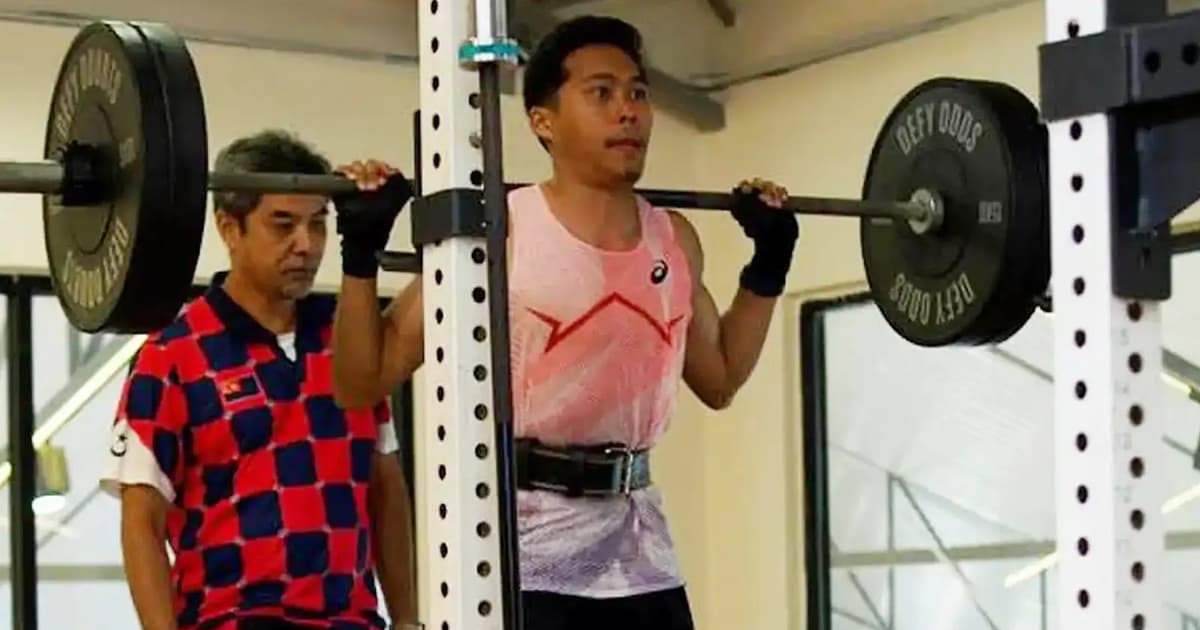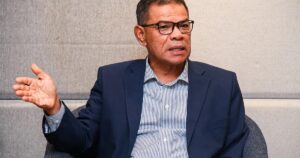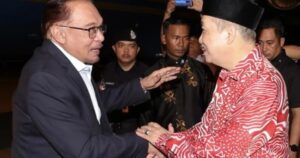
Two state athletics secretaries, not the president of Malaysia Athletics or senior coaches, have been named as Malaysia’s faces at the sport’s biggest event in Tokyo this week.
One is team manager for a one-man World Championships squad. The other represents the country at the World Athletics Congress, held today and tomorrow.
Meanwhile, the country’s brightest quarter-miler in decades, Umar Osman, is about to run the biggest race of his life without the coach who turned him into a SEA Games champion.
The optics are stark. Officials take the spotlight, the athlete adapts alone.
For a sport already fighting for credibility, the questions are blunt: who comes first in Malaysian athletics — the athlete or the administrator?
And when influence is currency, is Malaysia sending the right signals?
A lone athlete, without his coach
Malaysia’s only athlete at the World Championships, starting Saturday, is Umar. The 22-year-old from Johor holds the national 400m record of 46.09 seconds.
He earned his wild card with strong runs this year, including 46.25 at the Asian Championships in South Korea.
But the man who moulded him into a SEA Games gold medallist, Simon Lau Chin Meng, has been left behind.
Lau, now head track and field coach at Singapore Sports School, has still been training Umar in Kuala Lumpur.
He could have doubled as both coach and manager. Instead, the manager’s role went to V Govindasamy, secretary of the Penang Athletics Association.
For Umar, the absence of his coach means facing the mental and technical demands of a world meet without the person who knows him best.
In sprinting, where fractions matter, that absence counts.
Lau’s quiet worry
When asked, Lau was calm but candid. Not travelling with athletes, he said, was not new. But it was never easy.
He stressed that he trained his athletes to be independent and ready for any situation.
“I’m not really worried about the athletes,” he said. “I’m worried about the team manager. Hopefully he does his job properly, takes care of the athlete and pays attention.”
That worry is real. At world meets, a manager’s job is not symbolic. Accreditation, transport, call-room checks, recovery routines — every detail matters.
For a lone athlete, one slip is costly.
Congress without the president
If Umar’s case shows the gap between athlete and coach, Malaysia’s presence at the World Athletics Congress points to deeper flaws.
Instead of the president of Malaysia Athletics, the country is represented in Tokyo by Kedah Athletics Association secretary S Govindarajoo.
The congress is no side-show. It is where policies are debated, funding set, and partnerships shaped.
It is athletics’ parliament, and Malaysia’s vote has weight.
Sending a state secretary, however credentialed, instead of the national president risks signalling that Malaysia cannot, or will not, put forward its top leadership.
Influence squandered?
This is not about individuals but perception. The congress is where alliances form and bids for hosting or leadership roles are positioned.
The president’s presence shows seriousness. It gives Malaysia standing in a room where influence decides futures.
A state official, however competent, may not carry the same authority.
The danger is clear: Malaysia risks being a quiet participant, not a persuasive voice. In sport, silence is costly.
The decisions were not random. Malaysia Athletics has a selection committee that names athletes and officials. The council sets policy; the president stands apart.
Yet procedure is not the same as priority. Governance is judged by outcomes and optics. And the optics now do not flatter.
An athlete-first test
Umar reflects both the promise and the problem of Malaysian athletics. A rare talent, he steps into the world’s biggest meet with less support than he deserves.
His coach stays home. Officials take their seats in Tokyo’s hotels and meeting rooms.
Leaders may argue that rules were followed. But rules are not values.
Athletes, fans, and the wider public see something simpler: one runner, two secretaries, no coach.
The bigger picture
This is about more than Umar’s race. It is about Malaysia’s credibility in global athletics, its role in shaping policy, and its willingness to put athletes first.
The world is watching. Malaysia must decide how it wants to be seen: as a body that champions its athletes, or one that prioritises its officials.
In sport, as in governance, choices reveal values. In Tokyo, Malaysia’s choices are plain to see.

400m champion Umar Osman lifts in training under the watch of coach Simon Lau in Kuala Lumpur. Lau, however, will not be in Tokyo for the World Championships. (Simon Lau pic)
The views expressed are those of the writer and do not necessarily reflect those of FMT.






